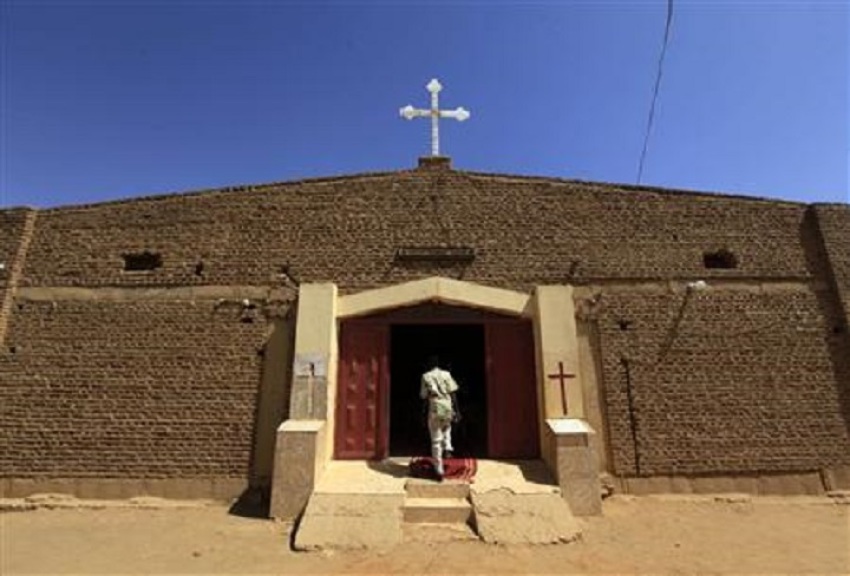Christian group cautiously optimistic after Sudanese gov’t allows building of Orthodox Church

In a country where churches are often destroyed, the Orthodox Church in Sudan was finally granted permission to build a church on its own land in a residential area after previously being denied that right by the government.
Permission was given to the church to start building on July 16 after the government asked Khartoum state Governor Ayman Khalid Nim to review the case, sources told Christian Solidarity Worldwide, a human rights organization working on behalf of persecuted Christians.
Even though the Orthodox Church owns the land, the government has the authority to deny planning permission for the building of churches. It also has the right to demolish a church a year after it has been built if the Urban Planning Department denies its permit.
The church project was initially denied by the Urban Planning Department, which said a church couldn't be built on a residential property. At the time, a representative of the department, Hassan Isa, told the Orthodox Church that in order “for the church to be able to use their land as a place of worship they must change their registration from residential to commercial use and must seek the permission of all neighboring properties."
Another hurdle for the Orthodox Church was that if any two residents in the area opposed the building of a church, the plans would be denied.
While mosques are allowed to be built in residential areas and Muslims are allowed to use their homes as places of worship, Christians are not allowed those same rights.
Mervyn Thomas, founder president of CSW, released a statement celebrating the Orthodox Church’s ability to build a place of worship on its own land.
“CSW welcomes the reversal of the legally questionable and discriminatory decision to deny the Orthodox Church the right to build on its own land; however, we remain concerned by the lack of a clear process for the registration and construction of churches,” Thomas said of Sudan, which has a history of church buildings being attacked or destroyed.
Thomas also commended the dismissal of Nagi Abdalla, the former executive director of the Khartoum Bahri locality, who reportedly was responsible for violations against the Sudanese Evangelical Presbyterian Church where a church was demolished and authorities arrested 37 people during a prayer service.
“We also welcome the dismissal of Nagi Abdalla, and now call for an urgent review of the contracts he signed which led to the destruction of church properties in Khartoum Bahri,” Thomas said.
Abdalla reportedly signed numerous contracts with illegitimate committees, which led to the destruction of properties belonging to the church, according to CSW.
“While we welcome the positive steps taken in this case, we remain concerned by the way the Sudanese government appears to resolve these cases on an ad-hoc basis,” Thomas continued. “This decision-making process was adopted by the previous regime and it fundamentally undermines rule of law and good governance.”
Thomas called for the equal treatment of all religious groups, starting with a better process for registering places of worship.
“We call for the formulation and implementation of clear and transparent processes for the construction and registration of places of worship, in order to ensure that all religious groups are treated equally,” Thomas said.
In an emailed statement to The Chrisitan Post, CSW said the procedure to register churches on unregistered land in Sudan is “complicated and unclear,” which has resulted in many being destroyed.
CSW said the granting of permission to the Orthodox Church came from external pressure. Even after the governor’s decision, the Urban Planning Department tried to oppose the permission.
CSW said the land needs to be permanently defined as a service purpose rather than residential since the land is still “vulnerable” while listed as residential property since the Urban Planning Department could refuse to renew the building’s property within a year.
“Even if the church is built, it will still be at risk, theoretically, as it will be built in residential land and the Urban Planning Department retains the right to demolish it,” CSW told CP in an email.
Sudan is ranked No. 13 on Open Doors’ World Watch List of countries where Christians face the worst persecution due to a “very high” level of Islamic oppression though it has made strides toward religious freedom recently due to a transition in government after its dictator was ousted in 2019 and a new constitutional declaration was issued.
Sudan was also one of the countries no longer recommended for the U.S. International Religious Freedom Commission's Special Watch List designation since its conditions had improved and it no longer met the requirements for that second-tier State Department classification.
Sudan’s population of around 43.5 million is home to nearly 2 million Christians.
Emily Wood is a reporter for The Christian Post. She can be reached at: emily.wood@christianpost.com


























